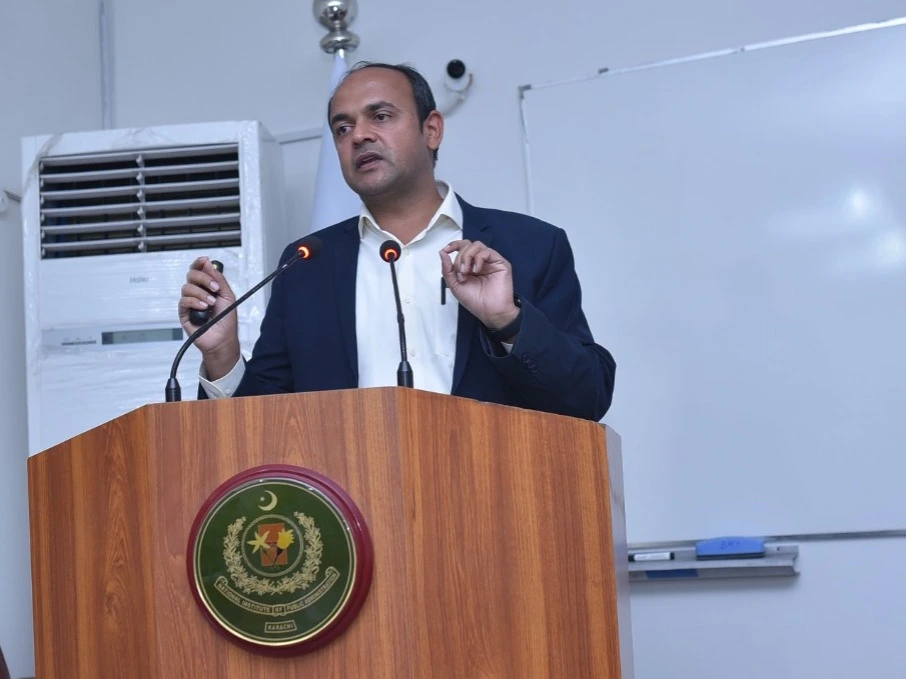Dr. Muhammad Nadeem Sarwar, Team Lead (Economy and Institutions) at PRISA Institute, London and Assistant Professor at the National University of Computer and Emerging Sciences (NUCES), Islamabad, was invited as an Expert Guest Speaker for the 36th Senior Management Course (CMS) by the National Institute of Public Administration (NIPA, formerly NIM), Karachi, to discuss the State-Market Relationship in Pakistan.
In his talk, Dr. Sarwar explored the historical development of state and market, highlighting perspectives from various economic schools including Mercantilism, Classical, Keynesian, Marxism, Neoliberalism, Globalization, and the emerging proponents of Industrial Policies. He also discussed the role of the state as an entrepreneur, referencing Mariana Mazzucato’s ideas. The participants examined Pakistan’s economic journey, noting the contributions of the Pakistan Industrial Development Corporation (PIDC), Pakistan Industrial Credit and Investment Corporation (PICIC), and the Industrial Development Bank of Pakistan (IDBP) in the early days of independence. This was followed by discussions on the phases of nationalism in the 1970s, Islamization in the 1980s, privatization, and recent crisis management efforts.
Dr. Sarwar emphasized that both the state and market need to work in tandem. The state should ensure property rights, contract enforcement, effective regulation, and the flow of information, while the market should handle resource allocation, pricing, and business management.
He pointed out that economies worldwide have achieved sustained high growth by integrating into regional and global trade, ensuring macroeconomic stability, increasing savings and investment, and focusing on human capital—all of which require effective roles for both government and markets. Unfortunately, in Pakistan, the state has often tried to limit market space and influence prices and resource allocation. As a result, the markets in sectors such as agriculture, energy, real estate, and finances remain underdeveloped, and the country performs poorly on economic freedom and governance indices. Pakistan need to integrate into trade and investment especially from South Asian countries, and end protectionism to ensure the development of competitive markets.
Dr. Sarwar also highlighted major constraints to market development in Pakistan, including political credibility, time inconsistency, weak state capacity, lack of trust, poor protection of property rights, and elite capture, leading to ineffective and inconsistent policies.
Throughout the session, participants remained engaged through Q&A, sharing their thoughts and experiences. The highly interactive session concluded with a vote of thanks to Dr. Sarwar.
Event Gallery
[foogallery id=”4045″]
/

